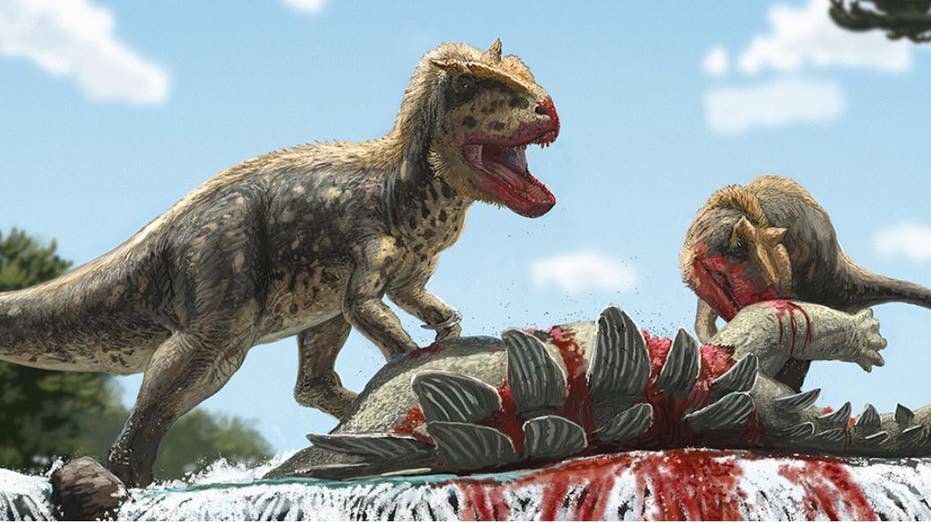A new carnivore has come to town — 165 million years ago at least.
The Alpkarakush kyrgyzicus, a new species and genus of theropod dinosaur, has been discovered in Kyrgyzstan by an expedition team of German and Kyrgyz researchers, according to the Bavarian State Natural History Collections in Germany.
Alpkarakush kyrgyzicus is the first theropod dinosaur found in Kyrgyzstan and the “find is one of the most significant in Central Asia,” the institution said in a news release.
Before the new species’ discovery, no large Jurassic predatory dinosaurs had been known to live in the area around Kyrgyzstan between Central Europe and Eastern Asia, according to the institution.
DINOSAUR-KILLING ASTEROID LIKELY CAME FROM BEYOND JUPITER, STUDY FINDS
The first fossils of Alpkarakush kyrgyzicus were uncovered in 2006 by Kyrgyz paleontologist Aizek Bakirov in a mountainous desert area of the country near the city of Tashkumyr.
Between 2006 and last year, more fossils, including skull bones, pelvic vertebrae, and forearms were found.
The dinosaur is believed to be around 30 feet long.
“Particularly impressive is its extremely protruding ‘eyebrow’ on the so-called postorbital bone, a skull bone behind the eye-opening, which indicates the presence of a horn at this point,” the institution said. “Other unique features are found on the dorsal vertebrae and the femur.”
Alpkarakush kyrgyzicus and Tyrannosaurus rex (T. rex) were both theropods — although T. rex lived later during the Cretaceous period and in different parts of the world — dinosaurs who walked on strong back legs and had shorter front limbs. Modern-day birds evolved from theropods.
NEWLY DISCOVERED DINOSAUR SPECIES IS ONLY GREEN FOSSIL EVER FOUND, TO BE DISPLAYED IN LA
Professor Oliver Rauhut of the Bavarian Collection of Paleontology and Geology in Munich, who was a first author of the study published in the Zoological Journal of the Linnean Society, said in a statement: “This discovery closes a huge gap in our knowledge of the Jurassic theropods. It leads us to important new insights into the evolution and biogeography of these animals.”
CLICK HERE TO GET THE FOX NEWS APP
A smaller, juvenile Alpkarakush kyrgyzicus specimen was found at the site along with the adult dinosaur, leading researchers to believe it may have been a parent and child.
Alpkarakush kyrgyzicus is named for a mythological Kyrgyz bird called Alpkarakush that often aids heroes in critical moments and for being found in the Kyrgyz Republic.
Source
